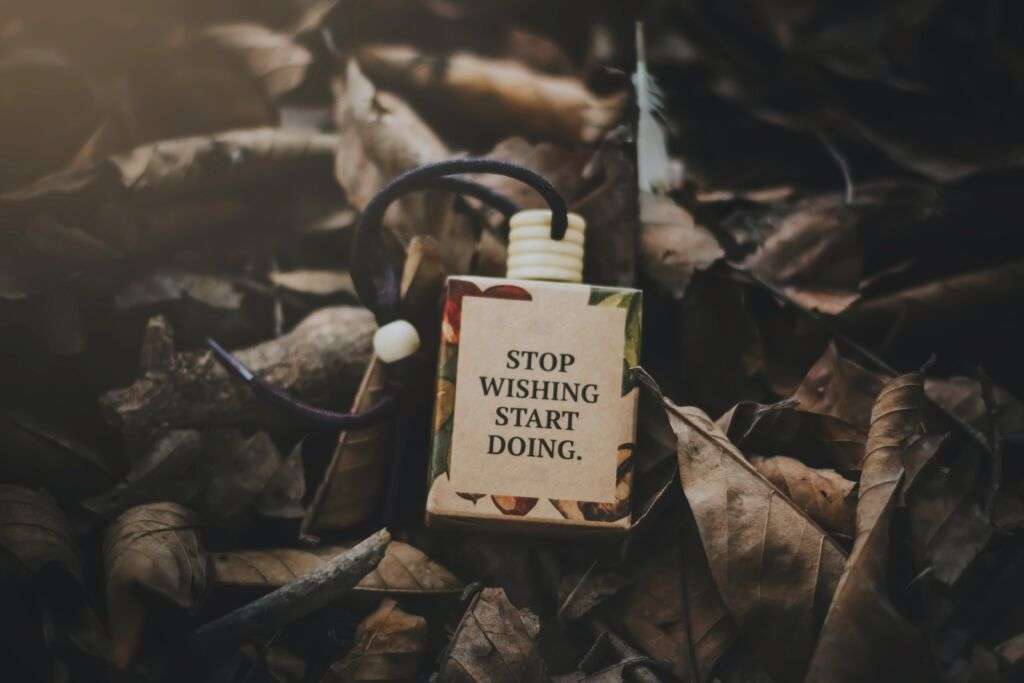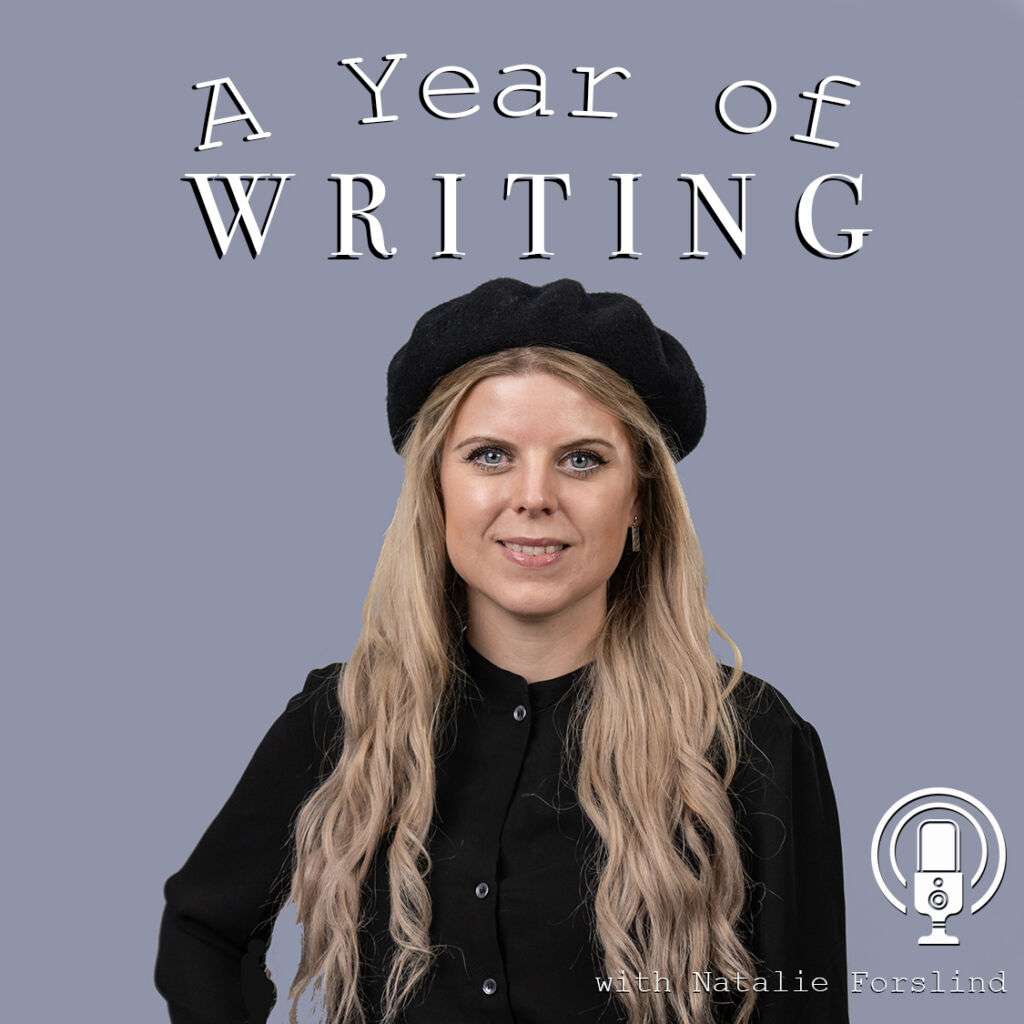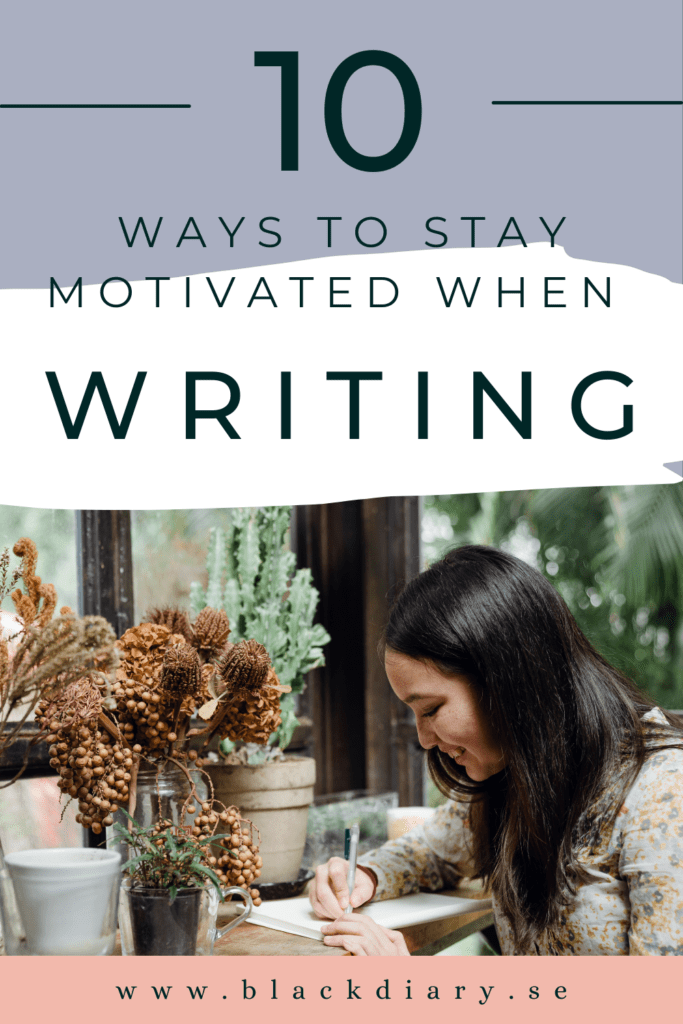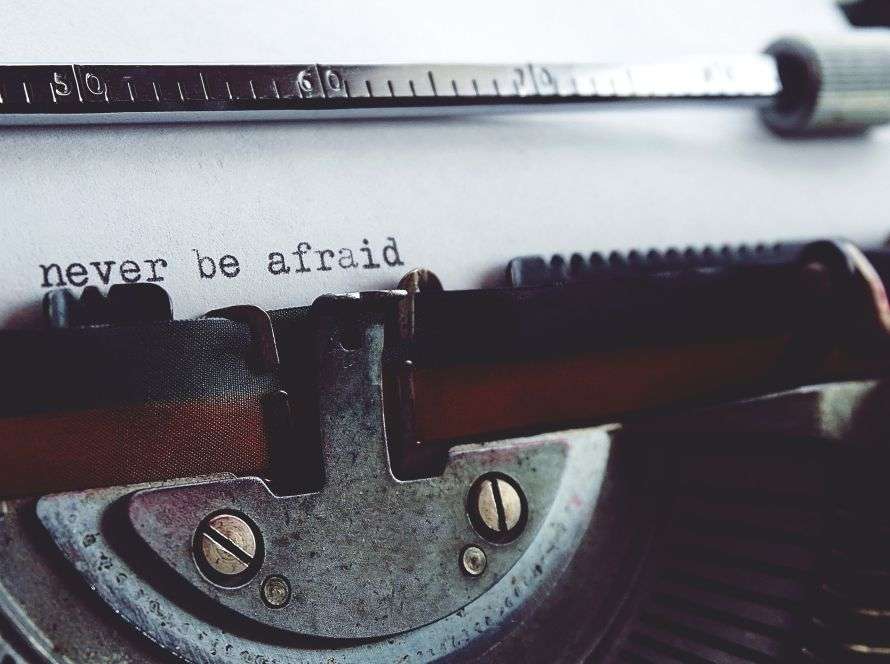Hello everyone. My name is Natalie and this is episode three of A Year of Writing. Today we’re going to be talking about how to stay motivated and inspired throughout the writing process. This is a podcast about productivity, writing and marketing. My name is Natalie and I’m your host.
A lot of us writers will at one point or another end up struggling with motivation and inspiration. It become so bad that you don’t write for a year. I did not write that much for a few years and it was not fun. I did not feel motivated, I did not feel inspired to write, so I created excuses for myself not to write. And that’s why wanted to make a podcast episode on the topic so that you don’t end up there regretting not spending as much time writing as you could have.
Some of the topics I’m going to discuss today are:
- The Artist’s Way by Julia Cameron, how it helped me finding my way back to creativity and motivation.
- The creative habit by Twyla Tharp.
- SNS – second novel Syndrome.
- My tio 10 advice on how you can stay motivated throughout the writing process.
If you ever end up feeling like you don’t have the inspiration or motivation to write I recommend that you read The Artist’s Way by Julia Cameron. The Artist Way is a twelve week program where you go through different steps that will reboost your creativity. It will heal you somehow. I’m not sure how or why it happens, but it really worked for me.
After university I started working with communications for a few years and during that time I did not write as much as I would have liked to. It was not until I read The Artist’s Way by Julia Cameron that I actually started finding my way back to the writing process that I wanted to have. The writing process that energizes me and that lets me be the best version of myself. It was one of those nudging things that really helped me. The Artist’s Way also led me into starting to believing myself as a writer again.
I had not sent in any manuscripts to publishing houses ever because I did not think that my books were good enough. I’m going to be talking about the fact the fear was holding me back in episode six of the podcast. We’ll deep dive into my fears and my demons in that episode. But what I can tell you is that The Artist’s Way helped me to realize that I am a writer. And it also helped me to have the courage to send the manuscripts to publishing houses. I sent it to only a selected few, and one of them said yes. Isn’t that crazy? If you take a leap of faith, then someone will catch you.
In Julia Cameron’s book the Artist’s Way, one of the things that I’ve taken with me is writing morning pages. Every morning, I sit down and I write handwritten pages, like stream of consciousness journaling. If something bad happened the day before, I can just pour it out on the page and let go of it. Or if there’s something I’m thinking about in my manuscript I’ll write about it when journaling. It’s a really great way to start the day in a creative manner, and I still do it all these years after reading the book.
Another great takeaway from her book is going on artist dates. So an artist date is you going out on a date with yourself to a place where you where you want to go. Where you feel some kind of happiness or creative energy. I love going to art galleries and museums, so that’s some of the places that I’ve been. And it’s a way for you to refill your creative bucket, which water your plant, because that is something that sometimes happens. We want to create juices, a way to take in impressions from others. And if we don’t do that, then we won’t be able to be good artists. We won’t be able to create good art.
The Creative Habit by Twyla Tharp is a great book on how you can create a life that boosts your creative habits. People don’t really think that habits and creativity go hand in hand, but they do. Because if you have habits that will help you create a space where you can be creative and where you’re usually creative, your brain will associate that place with creativity and will gointo creation mode. One way to do that is by sitting down to write every morning at the same place. That teaches your brain switch to creative mode as soon as you sit down.
Another thing Tharp talks about in the book is getting busy copying. She say that it is important to take in impressions from other people, look at how they created and then dissect it to do something of yourself. Not copying, but rather becoming inspired.
She also says that for every dance that she creates, she has a box where she puts down all kinds of ideas and inspiration for the dance. I usually use the freeform app on my MacBook or a Pinterest board where I just put things that inspires me. Sometimes I’ll add what kind of and it creatures exist and make a mind map of visualization, of feelings and characters. It’s a great thing to go back to when you don’t feel motivated or inspired.
And I’m going to read a quote from the book, the novelist John Georgie Dunn is explaining the difficulties of writing a novel. He says
Because one has written other books does not mean that the next becomes any easier. Each book, in fact, is a tabula rasa from book to book. I seem to forget how to get characters in and out of rooms. It is a far more difficult task than the non writer might think.
John Georgie Dunn
I really like this quote because it highlights the fact that just because you managed to do it before, it does not mean that it has to get any easier. Writing is hard, but it’s also wonderful. And of course it might get easier, but it also might get harder because when you become a better writer you’ll find new challenges.
This also bridges to the next topic :SNS, second novel syndrome.
Second novel syndrome is when a writer is trying to write the second novel after the debute. According to an article in the latest number of Tidningen skriva, The Writers Magazine in English, a lot of very successful debutants it may have a hard time writing their second book. It takes between seven to ten years in average for a successful debutants to publish their second book. Why is that?
What is SNS and why does it occur? The journalist interviewed a bunch of authors. Some of the reasons for why it took them such a long time to write a second book was that they wrote their debute novel during a writing course. Some of them had a leap year to write, wrote a novel, got published and after that they have to go back to their normal life. Some were just about to start a family. Some had to go back to work. The point was that they didn’t have as much time to write as they used to have, which made it a lot harder to write their second book. That is why, if you’re in that situation, please listen to my episode on productivity and start writing every day. I think it’s one of the keys to a successful author career.
Another thing may be that they felt a lot of anxiety and pressure from both from their publishers, editors, fans and family. And all of a sudden writing wasn’t something they did for fun anymore. It’s became a job. During that switch, it might be hard to find motivation and inspiration.
How can you avoid ending up with SNS? Well, one of the things you can do is actually to start writing your second novel as soon as you can. Like straight away. Let’s say you’re are sending the manuscript you just finished to publishing houses. Start writing the second book straight away. Don’t wait for the response. Don’t wait for the book to get published. If you keep on writing and keep on improving your writing and get the first draft of your second novel ready you might be able to avoid second novel syndrome. And now for this thing you’ve all been waiting for.



The top ten advice on how to stay motivated and inspired throughout your writing process.
The first tip is, of course, write every day. I talked a lot about this in the productivity episode. If you write every day you act like the person you want to become. You want to become a successful writer. Successful writers write every day. And by acting like the person you want to become, you’re taking one step closer. Each day that you sit down and write, like, in the end will make you feel more like writer. And that in itself is very motivating and inspiring. And also by writing every day, you create a habit and a routine. Not going to say that you trick your brain, but you make it easier for your brain to find creative day each morning. I write every day. I roughly write around 1000 words per hour.
Tip number two on the list is to set a writing goal. Think about how long you want your novel to be. Let’s say you want it to be 75,000 words. If you write if you’re like me and write roughly around 1000 words per hour, then how long would it take for you to finish a first draft? Is it possible for you to write a thousand words per day? Or is it possible for you to write 200 words per day? Anyways, the point here is to set small goals so that you get into the creative habit of know the habit of creating every day. I have quite a tough goal right now trying to write a book in just four months. So to be able to do that, I have to write 1203 words per day to be able to have time to edit it before sending it to my editor.
Tip number three is join a writers group. There are a bunch of writers group and you can decide if you want to be a part of writers group online or in real life. I’m a part of both. So I have an online writers group that I meet every Wednesday. And when I’m in Stockholm, I have a writers group that I go out and grab a coffee with every now and then. We don’t see each other as regularly as the other groups that I’m a part of. When I’m in Amsterdam, I’m a part of a writers group that meets once a week and we sit and write for three hours at a library. It’s an amazing way for me to stay motivated and also to be around other people that are like me, because writing in itself can be quite lonely. But if you surround yourself with other writers, you get a chance to discuss problems and you get a chance to learn from others and they’re going through the same things that you are. If you feel unmotivated, or if you have writer’s block, I can guarantee you someone else has been through that or is going through the same thing. Maybe you have Imposter syndrome, then talk about it. Because talking about it and realizing you’re not alone is a great relief and it can help you get over the hump of not being motivated.
Tips number four is to switch it up. If you feel unmotivated to write on your manuscript, then do some research or write some backstory. Maybe it won’t end up in the manuscripts. But if you know the backstory as an author, I guarantee that the story will be better. Or why not try and write something completely different? If you write romance try to write a thriller or nonfiction book just to keep writing and to mix it up. Mixing it up can actually lead to some creative twists for your story.
And tip number five is to try writing prompts. There are a bunch of great writing prompts out there. Just Google it and you will find quite a few. Writing prompts are great just to warm up before your writing session. Sometimes the thing that was in the prompt might end up in your story. You never know. It did for me once. I added a little girl with red hair from a writing prompt in my dystopian manuscript. I’m like, where did the girl with the red hair come from?
Tip number six is to read other people’s books. Read them, analyze them. Look at how they create dialogue. How do they create suspense? What happens at the different plot points in their books? How can you learn from them? One of my favorite quotes is from Stephen King in his book On Writing is this one:
If you want to become a great writer, you must do two things above all else. Read a lot and write a lot. There is no way around these two things that I am aware of. No shortcuts. If you don’t have time to read, you don’t have time or the skills to write.
Stephen King
I’m going to talk about this in episode five of the podcast.Why you should read more as a writer.
Tip number seven is to get rid of distractions. Turn off your notifications on your phone. Don’t look at social media. Don’t brows the web on your computer unless it’s for research. Try to minimize distractions, because if you take away the distractions, it will be a lot easier to stay on point and stay focused and motivated.
Tip number eight is to outline first. Creating an outline is one of the greatest ways for you to avoid writer’s block. And if you have an outline, it will be easier for you to stay motivated and inspired as well. I know that pansing your way through the first draft is a lot of fun. I used to it myself. But outlining an amazing way for you to stay motivated. And if you don’t feel like writing the sad scene today, move on to the next one. It’s a lot harder to make excuses for yourself if you know what’s going to happen.
Tip number nine is to learn more about writing. Read books on writing. Read books on story structure, on dynamic dialogue or whatever. Listen to podcasts on the subject, watch YouTube videos, or read blog posts. I think that the more I learn about writing, the more motivated and inspired I feel.
And number ten, the last advice on my list, is to go out on an artist date with yourself or go out to do research. Is your character going to go to a wine bar? Well, go to the same wine bar and maybe even do some Method Writing. Get into the head of your character. Become your character for a night. Just see what happens. How would they act? Who would they talk to? What would they do?
This is all for today. Thank you so much for listening. If you like this, please subscribe to the podcast. It really means a lot. My name is Natalie. Thank you for listening.





